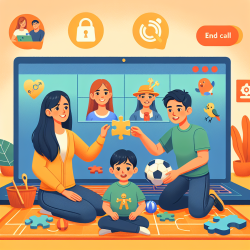The Individualized Education Program (IEP) meeting is a pivotal event for you and your student. This is where you collaborate with educators and school administrators to design a tailored educational plan that meets your child's unique needs. Understanding the services available, your student's rights, and how to craft an effective plan can empower you as an equal partner in the educational team.
The Importance of the IEP Meeting
IEP meetings must occur within 30 days after your child is deemed eligible for special education services, which may include speech/language therapy, physical therapy, and occupational therapy. Schools are required to provide advance notice of the meeting and work with you to schedule it at a mutually agreeable time and location. If language barriers exist, a qualified translator or interpreter must be provided.
Special education is not confined to a specific place; rather, it's a service that can be delivered in various settings based on your student's goals. The aim is to educate students in the Least Restrictive Environment (LRE), keeping them in general education classrooms whenever possible.
How to Prepare for the IEP Meeting
- Gather Necessary Documents: Collect previous IEPs, assessments, and notes relevant to your student's educational needs. Organizing these by school year can aid in reviewing them before the meeting.
- Understand the Attendees: Know who will be present at the meeting and inform the school if you'll bring support such as family members or advocates.
- Reflect on Strengths and Needs: Consider your student's strengths and areas requiring support. As their best advocate, this preparation will enable you to contribute meaningfully to discussions.
- Request Pre-Meeting Materials: Ask for notes, reports, and draft IEP goals at least three days prior. While schools aren't mandated to share draft IEPs, having these can streamline the meeting process.
- Clarify Meeting Agenda: Understanding the meeting structure helps manage expectations. If discussions run over time, request additional meetings.
- Ensure Goals Are Measurable: Goals should be specific and achievable within set timeframes. Don't hesitate to question any objectives that seem unclear or unmeasurable.
- Prepare Concerns List: Outline any worries about your child's progress or proposed plans. Be open to compromise but ready with alternative solutions.
- Support Teacher Implementation: Discuss necessary teacher supports for implementing the IEP effectively.
- Post-Meeting Considerations: You don't have to sign the IEP immediately if unsure. Take it home for review; another meeting can be scheduled if needed.
The PEATC’s mission is about fostering positive futures through collaboration with families, schools, and communities. For more resources on navigating IEP meetings effectively, follow this link.










